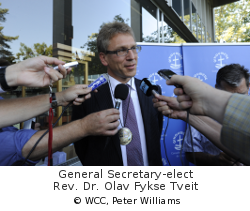Preserving a Legacy
 Editor’s Note: This article is reprinted with permission from Doug Kutilek’s free newsletter “As I See It,” a monthly electronic magazine, and appears here with some editing. AISI is sent free to all who request it by writing to the editor at [email protected].
Editor’s Note: This article is reprinted with permission from Doug Kutilek’s free newsletter “As I See It,” a monthly electronic magazine, and appears here with some editing. AISI is sent free to all who request it by writing to the editor at [email protected].
Should my life extend to the 17th of this month, I will have attained to my “Heinz pickles” birthday (if you don’t catch the allusion, look at the label on a jar). Having lost a step or two in my race with the grim reaper—a race I must inevitably lose—I am compelled to reflect on life, particularly on my life. The inescapable decline in physical and mental capacity has long since set in, and is continuing apace. I can no longer labor physically with the intensity and endurance that I not so long ago could. My mental stamina for protracted and intense study is noticeably diminished, though I hope I am much more efficient in the use of my mental energies than I was at 20 or 30 or even 40. I’m over the crest and on the back side of the hill—and have no certainty as to how long or steep the slope is on the way to the bottom.
I ask myself, what have I accomplished in these nearly 57 years? Compared to a list I wrote up for myself when 25, precious little, indeed virtually nothing that I had planned to do back then. I had set an agenda of teaching in Bible college or seminary—continuous teaching at one institution was the intent (preferably one with an extensive library). I have in truth taught much in the intervening years, indeed almost continuously and in many places and schools and churches, but without the continuity (or livable salary—I’ve nearly always had to endure the distraction of “secular” work) to accomplish the second purpose on my list: to transform class lecture notes into books on theology, apologetics, Bible topics and the like. A systematic theology and a major book on OT messianic prophecy (to replace Hengstenberg’s work) were planned, along with several other works. I have written much and diversely for publication—enough to fill a dozen books (only one of which has actually been published), but certainly much less of a lasting nature than I had hoped at 25. I have thought several times of compiling and publishing topical books “from the pages of As Is See It”: one of biographical sketches (chiefly Baptists), another of selected articles on the KJV controversy, another on the history of Bible translations (English, Hebrew, Spanish, Romanian, and more), yet another on studies in OT texts, another on studies in NT texts, and more. But since self-publishing requires a considerable cash outlay, and more considerable storage space for unsold stock, I haven’t yet undertaken any of these (so far, my efforts to secure a commercial publisher have been frustratingly unsuccessful). I fully believe that “the writing that men do lives after them.” I know well Spurgeon and A. T. Robertson and Vance Havner and Wilbur Smith and a many other men—indeed, including Paul, Peter, John and Jeremiah—because of the extensive corpus of writings they left behind. I suppose it goes without saying that the first step in all this must be to write something worth leaving behind.
Discussion
"One of the most vexing problems facing ... the church, is how to deal with sex offenders"
Body
Christianity Today: Modern-Day Lepers
“in some cases, Christians take their strong belief in redemption too far and fail to monitor offenders properly”
Discussion
Planting Urban Churches, Part 2
 Read Part 1.
Read Part 1.
Cultural accommodation is a genuine danger in planting churches. However, a real problem is the one-sided perspective that many have of accommodation. Usually the accommodation is seen rightly (Rom. 12:2) but narrowly only toward the world, caving in to worldly culture in dress, music, and questionable practices and associations. Frequently forgotten is the cultural accommodation toward Christians, generally well-meaning but misguided, who have a truncated view of the Christian life and seek to impose discipleship as they’ve known and experienced it as normative for all believers. Thus, there are twin dangers of cultural accommodation: 1) Accommodating or catering to the unchurched in designing worship from a seeker-driven mentality; 2) Accommodating or catering to the churched who come to the new church plant with their preferences paraded mistakenly for biblical convictions.
A recent article on urban church planting elicited mixed responses for which I’m mostly glad. I appreciate it when others point out weaknesses or would like more clarification. Since I’m not a blogger I don’t have a cadre of lapdogs to pat me on the back and cheer me on as seems to be the case with select blogs. A few people, in reading between the lines, may have understood my encouraging the removal of barriers to the gospel in thinking that doing so would allow people to more easily accept the gospel message. I’m all for getting rid of unnecessary barriers which prevent people from hearing the gospel. But there was no suggestion that getting rid of pews, ties, and changing the music will bring more people to Christ.
Nonetheless, I must maintain that I have no problem with an established church which desires biblical transformation or new churches started with a different model. Pew or chairs; Sunday best , business casual or jeans; morning and evening service or morning only; small groups or Wednesday evening prayer meeting—you may find biblical allowance, but you will not find biblical warrant for all your choices. What slightly amazes me is that many seem to care so much about churches where they have no voice of influence, only criticism.
Discussion
ACLU assists NJ felon in religious liberty case
Body
Discussion
What day was Jesus born on?
Body
Michael Patton explores the evidence.
Discussion
Bob Dylan's Christmas Carols
Body
CT reports: The Tunes They Are a-Changin’
Discussion
ACCC Report on the World Council of Churches
 Reprinted from the American Council of Christian Churches Special Report, Fall 2009. It appears here unedited.
Reprinted from the American Council of Christian Churches Special Report, Fall 2009. It appears here unedited.
Central Committee Meeting of the World Council of Churches
August 26 – September 2, 2009 • Ecumenical Center, Geneva, Switzerland
The process to elect a new General Secretary for the World Council of Churches (WCC) was marked by mystique, intrigue, secrecy, and guarded doors, with cell phones and iPods checked prior to an entrance into the William A. Visser’t Hooft Plenary Hall. Only the 140 members of the Central Committee were permitted inside.
Earlier the Search Committee shared with the media that the two candidates being presented were the Rev. Dr. Park Seong-won, a Presbyterian from Korea, and the Rev. Dr. Olav Fykse Tveit of the Church of Norway.
Several hours passed, and we later learned the method used in the restricted room. The first item on the agenda was for the Search Committee to give their report. This was followed by a speech from each of the two candidates. The actual voting was next. While the election was taking place, out in the lobby tables were being decorated, bottles of wine were chilled, and glasses made ready for the celebration toasts to begin. As soon as the doors were opened, the news spread rapidly that 48-year-old Dr. Tviet of Norway was chosen as the 7th General Secretary. One report indicated he had been selected by a majority vote of 80 to 60. At his first press conference, Tviet outlined his vision and goals. He began by pointing to a display on the wall near him and referring to the words that were there. They were from John 17:21, “…that they all may be one.” He stressed there had been a spirit of unity that dominated the election process and hoped it would continue.
Discussion